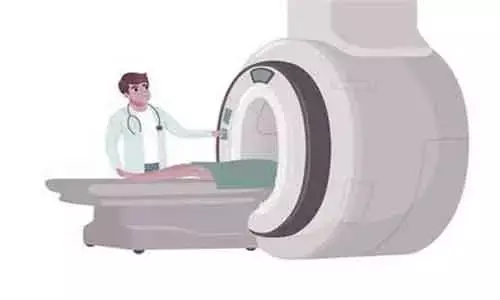- Home
- Medical news & Guidelines
- Anesthesiology
- Cardiology and CTVS
- Critical Care
- Dentistry
- Dermatology
- Diabetes and Endocrinology
- ENT
- Gastroenterology
- Medicine
- Nephrology
- Neurology
- Obstretics-Gynaecology
- Oncology
- Ophthalmology
- Orthopaedics
- Pediatrics-Neonatology
- Psychiatry
- Pulmonology
- Radiology
- Surgery
- Urology
- Laboratory Medicine
- Diet
- Nursing
- Paramedical
- Physiotherapy
- Health news
- Fact Check
- Bone Health Fact Check
- Brain Health Fact Check
- Cancer Related Fact Check
- Child Care Fact Check
- Dental and oral health fact check
- Diabetes and metabolic health fact check
- Diet and Nutrition Fact Check
- Eye and ENT Care Fact Check
- Fitness fact check
- Gut health fact check
- Heart health fact check
- Kidney health fact check
- Medical education fact check
- Men's health fact check
- Respiratory fact check
- Skin and hair care fact check
- Vaccine and Immunization fact check
- Women's health fact check
- AYUSH
- State News
- Andaman and Nicobar Islands
- Andhra Pradesh
- Arunachal Pradesh
- Assam
- Bihar
- Chandigarh
- Chattisgarh
- Dadra and Nagar Haveli
- Daman and Diu
- Delhi
- Goa
- Gujarat
- Haryana
- Himachal Pradesh
- Jammu & Kashmir
- Jharkhand
- Karnataka
- Kerala
- Ladakh
- Lakshadweep
- Madhya Pradesh
- Maharashtra
- Manipur
- Meghalaya
- Mizoram
- Nagaland
- Odisha
- Puducherry
- Punjab
- Rajasthan
- Sikkim
- Tamil Nadu
- Telangana
- Tripura
- Uttar Pradesh
- Uttrakhand
- West Bengal
- Medical Education
- Industry
MRI may predict major cardiac events in dilated cardiomyopathy, finds Research

Researchers at the University of Calgary's Cumming School of Medicine (CSM) have found in an international, multi-centre study that magnetic resonance imaging (MRI) can be used to predict major cardiac events for people diagnosed with dilated cardiomyopathy (DCM). The study has been published in the journal Circulation Cardiovascular Imaging.
Dilated cardiomyopathy (DCM), a disease characterized by an enlarged and weak heart muscle that can't efficiently pump blood is linked to heart failure.
The new study confirms about 40 per cent of patients with DCM have scarring patterns on their heart muscle which can be seen with magnetic resonance imaging (MRI).These patterns are associated with higher risk of future heart failure admissions, life-threatening heart rhythms and death.
The study, which was the largest ever-conducted using magnetic resonance imaging in patients with DCM, also shows that cardiac magnetic resonance imaging (MRI) can play an important role in guiding the care of individual patients with heart failure. White says that treating patients with DCM is challenging because there is a lack of understanding into what causes the disease, and why patients respond differently to the available treatments.
"We have tended to think of dilated cardiomyopathy as one type of heart disease and that all patients should respond the same way, but we are learning that it is a collection of disease states that affect each patient differently," says White, explaining those that don't respond well to treatments are more prone to cardiac arrest, which kills about 35,000 Canadians annually. "The purpose of our study was to see if we could find individual patient features that can help us prescribe life-saving therapies, such as the implantable cardioverter-defibrillator."
White and his team assembled the MINICOR (Multimodal International Cardiovascular Outcomes Registry) group, which involves 12 centres from Canada, the United States, Spain and Italy, to provide researchers access to highly standardized data collected from patients around the world with the goal of promoting personalized care for patients with cardiovascular disease.
"We can have a much greater impact on patient care and on clinical practice in general when we work together," says White "The true benefit of initiatives like this is our ability to test innovative ideas quickly and show they can work in different health-care systems and patient populations. This is the unique power of multi-national collaborations."
for further references log on to:
Dr Kamal Kant Kohli-MBBS, DTCD- a chest specialist with more than 30 years of practice and a flair for writing clinical articles, Dr Kamal Kant Kohli joined Medical Dialogues as a Chief Editor of Medical News. Besides writing articles, as an editor, he proofreads and verifies all the medical content published on Medical Dialogues including those coming from journals, studies,medical conferences,guidelines etc. Email: drkohli@medicaldialogues.in. Contact no. 011-43720751


